- Remember me Not recommended on shared computers
Forgot your password?
Or sign in with one of these services

Sample essays
Sample essays in IB History that are not past paper questions.
- Submit files and earn VIP
- Recently Updated
- Highest Rated
- Most Commented
- Most Reviewed
- Most Viewed
- Most Downloaded
How far is it true to say that Napoleon I was an enlightened despot?
Submitted April 9, 2022
Ib History SL Essays
Submitted July 28, 2021
Sample Essay on Hitler`s rise to power
Submitted April 25, 2021
TOK ESSAY 2021 - SPANISH
Submitted April 11, 2021
HL Paper 3 on China
Submitted April 7, 2021
IB history paper 2 peace treaties essays
Submitted April 3, 2021
History Paper 3 essay - To what extent was the Treaty of Versailles was a harsh and unfair peace?
Submitted February 17, 2021
IB History HL: WW1 final assignment ( paper 2 format)
Submitted January 2, 2021
treaty activity
Submitted March 18, 2020
HISTORY DOCX
Submitted February 24, 2020
Essay Mussolini Domestic Policies
Submitted November 7, 2019
history Spanish Civil war essay
Submitted October 23, 2019
Spanish civil war history essay
History discrimination civil rights movement, history practice scramble for africa question, sample essay on alliance systems.
Submitted May 27, 2019
History Paper 2 - Mao
Submitted May 21, 2019
Napoleon practice essay
Submitted May 5, 2019
Analysis 4 - Hayden Harper.docx
Submitted April 29, 2019
Analysis 3 - Hayden Harper.docx
Analysis 2 - hayden harper.docx, analysis 1 - hayden harper.docx, analysis 5 - hayden harper.docx, alexander ii's reforms: causes and consequences.
Submitted March 22, 2019
IBDP history EE sample essays
Submitted February 25, 2019
Recently Added Files
- Chemistry - Topic 8 Summary and Exercises
- cupdf-ib-ess-notes-pdf.pdf
- Localisation Using The Maguire Study
- Biotechnology Notes (3.5)
- eco notes (macro)
- Aerodynamics mini IA-Physics HL
- Assessment_Criteria.pdf
- IB Econ HL Chapter 1 Notes
- Topic 2. Functions notes.pdf
- Topic 3. Geometry and Trigonometry AA SL notes.pdf
Download Statistics
- Files 4,603
- Comments 176
- Reviews 270
54 0
- Existing user? Sign In
- Latest Activity
- Notes & Files
- Leaderboard
- Create New...

IB History: Paper 2 Essay Writing and Analysis
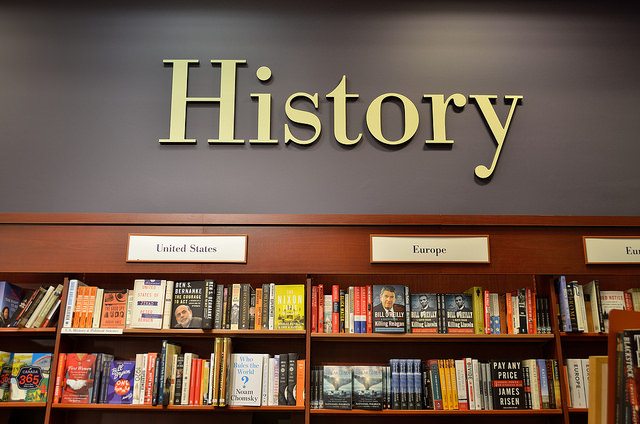
The International Baccalaureate (IB) History program challenges students to develop a deep understanding of historical events, themes, and interpretations. One of the key assessment components is the Paper 2 essay, which requires students to analyze and write about historical sources. In this article, we will explore the structure of the IB History Paper 2 essay and provide you with valuable tips and strategies to excel in this challenging task.
Understanding the IB History Paper 2 Essay
The Paper 2 essay in IB History is often referred to as the "Document-Based Question" (DBQ). It is a timed assessment in which you are provided with a set of historical sources and must craft an essay based on your analysis of these sources. The sources may include primary and secondary documents, images, maps, or texts.
The key components of the IB History Paper 2 essay include:
1. Source Analysis:
- You are required to analyze the provided sources critically. Consider the origin, purpose, context, and content of each source. Pay attention to biases, perspectives, and limitations of the sources.
2. Historical Context:
- Understanding the historical context is crucial. You need to place the sources within the broader historical narrative, identifying the events, themes, and time period relevant to the sources.
3. Essay Prompt:
- The essay prompt will ask you to construct an argument or response based on your analysis of the sources and your knowledge of the historical context. You must address the specific question posed in the prompt.
4. Essay Structure:
- Your essay should have a clear and organized structure. It typically includes an introduction, body paragraphs, and a conclusion.
5. Use of Evidence:
- You should support your argument with evidence from the sources and your historical knowledge. Effective use of source evidence is essential.
6. Historical Thinking Skills:
- Demonstrating historical thinking skills such as causation, continuity and change, comparison, and evaluation is essential for a successful essay.
Essay Writing Tips and Strategies
Writing an effective Paper 2 essay requires a structured approach and attention to detail. Here are some tips and strategies to help you excel:
1. Begin with Source Analysis:
- Start by thoroughly analyzing each source. Identify the author's perspective, any potential biases, and the context in which the source was created.
2. Organize Your Thoughts:
- Before you begin writing, outline your essay. Organize your argument, main points, and supporting evidence. A clear structure will make your essay more coherent.
3. Address the Prompt:
- Ensure that your essay directly responds to the essay prompt. Don't deviate from the question, and make it clear from the beginning how you intend to answer it.
4. Use Source Evidence:
- Integrate source evidence into your essay. Cite the sources when referencing them. This not only supports your argument but also shows your ability to engage with historical documents.
5. Provide Historical Context:
- Offer historical context for the sources. Explain how they relate to the broader historical events and themes of the time period.
6. Develop a Clear Thesis:
- Your thesis statement should provide a concise overview of your argument. It should address the prompt and guide the reader on what to expect in the essay.
7. Support with Specifics:
- Use specific examples and details from the sources and your historical knowledge. Avoid vague statements and generalizations.
8. Compare and Contrast:
- If the prompt calls for it, compare and contrast the sources. Analyze similarities and differences among the sources to support your argument.
9. Engage with Historiography:
- When relevant, engage with historical interpretations or the work of historians. Discuss different viewpoints and their implications for your argument.
10. Conclude Effectively:
- Your conclusion should summarize your main points and restate your thesis. It's also an opportunity to provide a broader perspective on the topic.
11. Edit and Proofread:
- After writing your essay, take time to edit and proofread. Check for clarity, grammar, and organization.
Sample IB History Paper 2 Essay Prompt
Here is a sample Paper 2 essay prompt to give you an idea of what to expect:
"Evaluate the impact of World War I on the emergence of new nation-states in Europe. Using the provided sources and your own knowledge, assess the extent to which the war contributed to the dissolution of empires and the creation of new states."
In response to this prompt, you would need to analyze the provided sources and your historical knowledge to construct an essay that evaluates the impact of World War I on the emergence of new nation-states in Europe.
Conclusion
The IB History Paper 2 essay is a challenging but rewarding assessment that tests your ability to analyze historical sources and construct well-argued essays. By developing strong source analysis skills, crafting clear and structured essays, and providing evidence to support your arguments, you can excel in this component of the IB History program. Remember to practice writing essays and seek feedback from your teachers or peers to further improve your skills. Good luck with your IB History studies and exams!
You Might Also Like

How to Stand Out through Extracurricular Activities
Do you know the importance of extracurricular activities? Why should you participate in extracurricular activities & how to stand out through it

The Secret Behind Early Applications
If you are serious about taking admission to your dream university/college, early decision admission program is best option for you, have a look! - AP Guru

Brainstorming for College Essays
This Article is intended to help you brainstorm and begin writing your personal statement essay and all the other college essays. This is a key step to write persuasive college essays

Free Resources
IB History IA - This ULTIMATE Guide Will Get You A 7
Transform your IB History IA with this ULTIMATE guide! Get tips to score a 7 & ace your assignment to unlock your full potential!
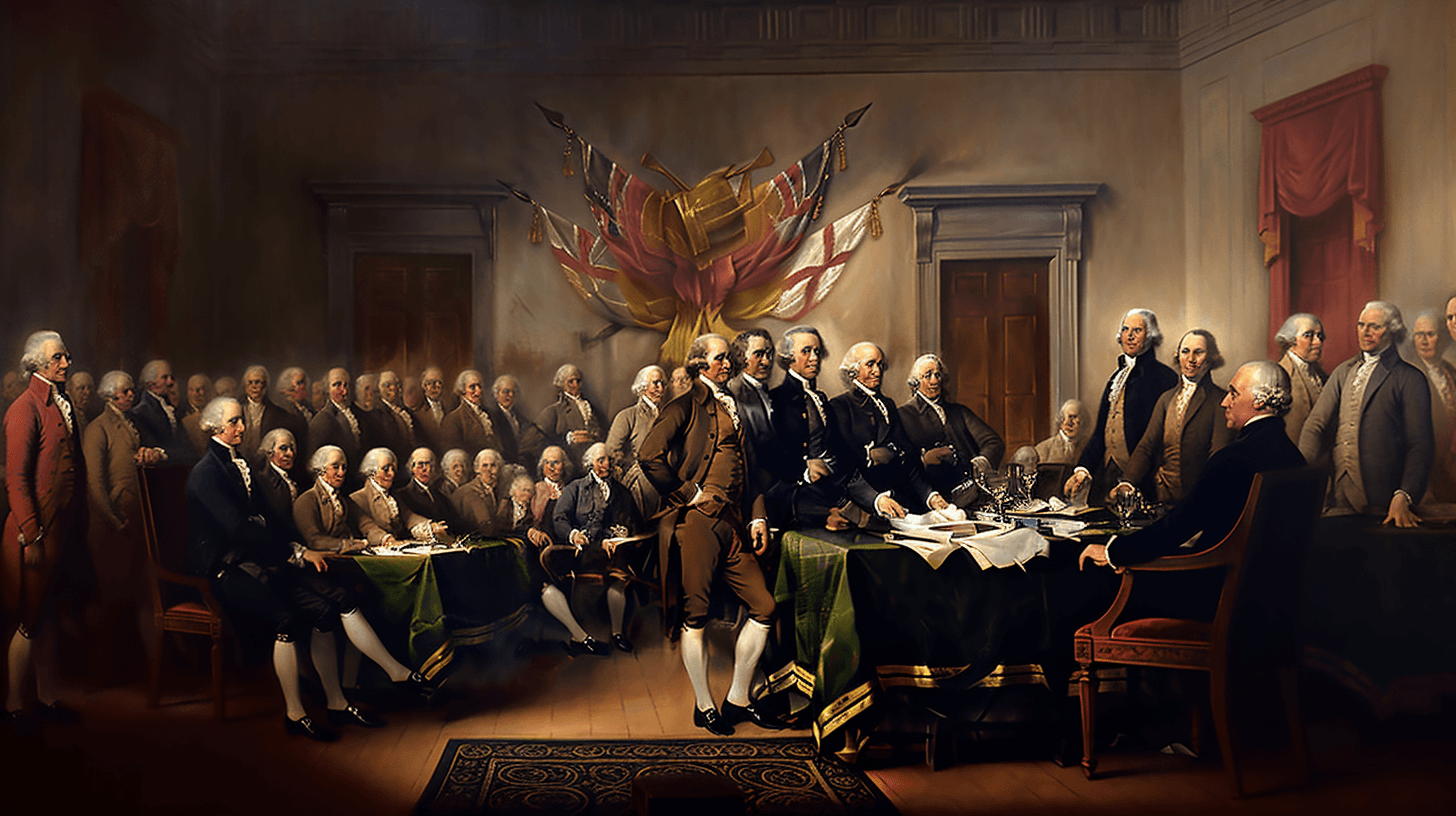
Table of content
What the hell is ib history ia, history ia rubric & pointers, finalizing your ib history ia topic, steps for effective research, different components of the history ia, identification & analysis of sources, investigation, introduction, critical analysis, sample ib history ia topics.
Being an exploratory subject, History has often worried IB students because it covers everything from World History to Depth studies as a part of the IB Diploma Programme course.
IB History IA is a whole different world of historical investigation that students generally struggle with!
The IB has introduced the IB History IA to help students inquire and get hands-on experience exploring the world we live in, especially in the context of our past. Through the History IA investigation, IB expects students to develop the skills of analytical inquiry and achieve the goal of the IB DP History course.
But that doesn’t solve the trouble.
Starting with one’s IB History, IA is one hurdle; completing it successfully is another!
Understanding the various facets of this investigation, doing the relevant research, and assembling the findings in an organized manner only to reflect on one’s work, takes more than just articulate planning.
It would help if you had a comprehensive guide to help you select, strategize, investigate and execute in the easiest way possible.
You are at the right place because this article covers everything from IB IA History rubrics to some select topics to get you going on your journey.
We present the ultimate IB History IA guide to help you score a perfect 7!
Before we start, you should check out the premium IB History HL Notes offered by Nail IB that cover not only past years’ papers but also curated guides on how to nail your Extended Essays and Internal Assessments. There is no way you should miss out on this premium content!
Also, we have several sample IB History IAs that will add value to your work and help you nail your investigation. Do check them out on the go!
But before delving deeper, let’s go through the contents of this article and help you get a clear idea of what this guide offers you:
The IB defines History as a dynamic subject that helps engage with the past strongly. It revolves around historical events of significance and encourages learning about their causation and the changes these events affected. IB History Diploma Programme presents History in terms of the following aspects -
To get more clarity on the purpose and aim of the discipline, go through the information provided about the IB DP History Course by the International Baccalaureate itself.
The IB History course aims to enhance students’ historical skills and develop a sense of international-mindedness. Through the History IA, IB expects you to critically explore the past with your learned skills.
A historical investigation on a topic of interest needs to be done by both HL and SL students.
While the IA makes for 25% of the final IB score of History SL, the weightage is 20% for History HL
A few of the advantages of this historical investigation are -
- Helps interpret and understand historical documents and resources
- Helps get a better understanding of the world around us and is of great benefit for students looking forward to taking History or related fields up at university.
Now that we know what the IB History IA is for HL and SL, let’s list the key pointers you should know before you embark on this historic journey. Let’s look at these essential points, shall we?
Before immersing yourself in the exploration, it is essential to understand how the structure of the IA works. Some necessary protocols that you can’t afford to miss are given below.
- The topic you choose for your investigation should not be an event of the last decade; it should be a historical event.
- The topic needn’t be something you have learned or studied at school.
- The word limit of 2200 words must be followed.
- It would help if you discussed the topic you chose with your teacher for guidance and approval.
- Make sure you regularly update your teacher on the drafts of your work.
- The investigation should not be performed in a group; it is an individual task.
- Make sure there are enough sources relevant to the investigation.
- Ethical considerations need to be taken into account during the entire process. Your instructor/teacher will brief you more on this.
- Finally, the work you turn in should follow the academic honesty guidelines laid down by the IB .
- Your teacher will assess your submitted IA and moderated by the IB.
The following substantial question is: What topic to choose? Settling on a case can be almost endless, so the next section should be your next station on this journey.
The struggle to land on an IA topic that genuinely interests you is accurate.
But we have compiled a list of points that you can refer to make the right decision.
- Go for a topic that interests you. No use picking up something from the charming contemporary world (WWI or WWII) if it doesn’t get you excited.
- Don’t be vague. Your research question needs to be as specific as possible.
- You can also choose a personal topic for your country, community, or region. This will help you find quality sources and produce a remarkable IA.
Get approval for your research question from your instructor/teacher.
A few sample research questions given by the IB in its guide are as follows:
- How significant were economic problems as a cause of the Bamberg Witch Trials (1623–1633)?
- What were the most important reasons for the failure of Operation Market Garden?
Once you pick a research question, the research you conduct for your investigation plays the most crucial role while kickstarting your exploration. The following section discusses the research that produces a relevant and informative IA.
Let’s talk business.
No matter how great a topic you select, your investigation will disappoint if your research isn’t up to the mark!
What’s important to note is that no matter what sources you pick, credibility is the key. The easiest way to conduct your research is online, no doubt. But if you think Wikipedia is going to answer all the questions you have, don’t.
While online sources can provide valuable information, never scrape off the little content you get.
Dig DEEPER!
This is precisely where Google Scholar will come in handy. Triple-check the details you collect. Always, always cite the original source.
Not to mention, books, journals, and academic papers are the numero uno for the research. Try looking up important works by historians and authors in your nearest library. That is set to give a brilliant direction to your process.
This is certainly not the end of it. Visit museums, universities, and several other sites of importance, because the information you will get here is exactly what needs to go into your IA.
We have a good idea of how the first few steps of making the History IA look. We now need to focus on documentation because your work will reflect all your hard work. Without further ado, let’s go!
The IB DP History IA allows all the students to showcase their skills and knowledge as historians. From selecting and analyzing resources to critically reflecting on one’s work by considering several viewpoints, the History IA is the perfect measure of a student’s inquiry skills. A lot goes into assembling and displaying the job in an organized manner.
All in all, the purpose of the History IA is to help students search, select, evaluate and present a viewpoint that follows the sources and the arguments made.
But before we start talking about the components of the IA, you should read the IB History IA guide provided by the IB itself. You will learn about the significance of what you’re doing and how you are supposed to be doing it.
The first section of the IA expects you to analyze two sources (primary or secondary) that you have used elaborately.
Other things to be kept in mind -
- State the question you have chosen clearly. Do not be vague. It should be stated as a question.
- You need to mention the relevance of the sources you have picked to analyze. Why were these sources important to your findings or conclusion? What do they offer? Do they give you more clarity in detail or a fresh perspective?
- Thoroughly analyze the two sources. Analyze and discuss the value and limitations of these sources.
- This analysis must be done in the context of the origins (when and by whom), the purpose (why), and the content (what).
The word limit should be 500 for this section.
Section 2 of your IA, the Investigation, is a tougher nut to crack but possible. Be mindful of specific essential points, and you'll be ready. Your Investigation should be nearly 1300 words and aim to answer your IA's question.
Since this is the actual Investigation, it should have a proper structure
- The first two paragraphs of your Investigation should briefly overview the topic. This is where you interest the reader/examiner. Why is the question you chose relevant or essential?
- The evidence used by you (as a reference, you may use 2 primary and 3 secondary sources) should be analyzed in different contexts. Try giving an informative counterargument if needed. All the sources should be discussed. You can also bring in diverse perspectives and address them in separate paragraphs.
- The last paragraph should be a concluding statement summarising the Investigation and analysis. Keep it short and precise.
This section deals with your reflecting on the methods used and the challenges you faced during the investigation. The word count for this section must be 400 .
Sample discussion questions given by the IB for this section are -
- What methods used by historians did you use in your investigation?
- What did your investigation highlight to you about the limitations of those methods?
- What are the challenges facing the historian? How do they differ from the challenges facing a scientist or a mathematician?
- What challenges, in particular, does archive-based history present?
- How can the reliability of sources be evaluated?
- What is the difference between bias and selection?
- What constitutes a historical event?
- Who decides which events are historically significant?
- Is it possible to describe historical events in an unbiased way?
- What is the role of the historian?
- Should terms such as “atrocity” be used when writing about history, or should value judgments be avoided?
- If it is difficult to establish proof in history, does that mean that all versions are equally acceptable?
🔥🔥🔥🔥 SUPER TIP - Sections 1 and 3 of your IA will fetch you marks in the easiest way possible. Make sure you nail these 🔥🔥🔥🔥
The Bibliography and citing of original works must be done towards the end of the investigation.
We at Nail IB have curated some sample IB DP History IAs for your benefit. Check these out to get a good idea to go about yours.
Another critical aspect of the IA is the assessment criteria. Knowing what the examiner is looking for in your work is essential. Go through the assessment criteria in the IB History guide before compiling your work.
And that’s a wrap!
We hope this guide will help you understand IB’s expectations from your IA and how to quickly seize that 7 by keeping the essential things in mind. To get a better grip on IB History, check out our premium notes and get closer to nailing your History exam.
Want some A-quality guidance for all things IB? Start your Nail IB journey today, and thank us later!
IB Resources you will love!
Nan + free ib flashcards, -1 + free ia samples, nan + ib videos by experts, -1 + ib sample practice questions, ib resources for nan + subjects.
Search This Blog
A guide to the ib.
Here is a blog where I talk about anything and everything possible about the IB, both within Finland and around the world!
History IA (Historical Investigation) Example - Grade 7

Insights mentioned in this blog is interesting and informative. For academicians it must be considered as a guide.Thank you for this wonderful post.
Post a Comment
Popular posts from this blog, how to get 7 in your ess ia: step-by-step.

IB Entrance Exam Preparation


Incorporating different perspectives into your IB History essays
Earning strong marks in your IB History exams requires you to be able to demonstrate specific skills such as how to successfully present different perspectives in your responses to Paper 2 and Paper 3 prompts. Yet, knowing that this skill is required and understanding how to to implement it are two different things. In this article our IB History author, Joe Gauci, sheds some light on this topic by demonstrating how to present differing perspectives without referencing specific historians' interpretations. For additional guidance on how to create a response that refers to historians' perspectives, see our article Using historians’ interpretations to present different perspectives in your IB History essays .
What IB History students need to know about their exam essays
Higher and Standard Level History candidates tackling Paper 2 and Higher Level candidates writing essays for Paper 3 need to be able to show an awareness and evaluation of 'different perspectives' in order to access the second highest mark band (10–12 out of 15) and provide an evaluation of different perspectives integrated into the answer in order to access the highest mark band (13–15 out of 15).
Does that mean you have to include different interpretations by named historians in your essays?

That is one way of demonstrating an awareness of differing perspectives, provided you use references to different historians' views appropriately, and do not insert them just for the sake of displaying your knowledge if they do not contribute to answering the question.
However, referring to named historians and their interpretations is just one way of demonstrating an awareness of differing perspectives, you can do so in other ways, provided you show that there are different possible approaches to answering the question in the essay title.
What does 'evaluation' of differing perspectives require?
Whilst showing an ‘awareness of differing perspectives’ just means demonstrating in your answer that there are different possible approaches to answering the question or different historical interpretations that apply to the question, ‘evaluation’ requires you to weigh up the relative merits/validity of the different approaches/interpretations.
Example: 'Evaluate the impact of one 20th century Civil War on women'
Now I will show you how you can demonstrate an awareness of differing perspectives without referring to historians' interpretations using the question above and with Spain as my case study.
A possible approach would be as follows. Please note that this isn't a fully-worked answer as it is about 600 words long, but it would form the builk of a response:
'There was not one but multiple and varied impacts of the Spanish Civil war (1935 - 39) on women. The impact varied substantially depending on women's geographical location, their political allegiance, and, as the Nationalists extended their control over more and more of the country. Before the Civil War broke out in 1936, during the course of the Left Republic (1931 - 33), the status and rights of women changed considerably as they were given equal legal rights to men, divorce was legalised, and women were given the vote, which they exercised for the first time in the 1933 elections. During the period 1931 - 36, women were involved in electoral campaignss, trade union committees, protest demonstrations and had much greater educational opportunities than previously.
Once the Civil War broke out, life for women across Spain changed as women were mobilized by both the Nationalists and Republicans as part of their war effort. In Republican areas such as Madrid and Barcelona, in the first phase of war, women joined Republican militia to help suppress the rebels, although only three months later, the Repbulican government announced that women could no longer serve as front-line soldiers. Large numbers of women in Republican areas also entered the factories or took over from men in public transport, as well as playing a key role as nurses. Federica Montseny, a leading Anarchist, became Spain's first female government minister in November 1936 when she was appointed minister of health by Largo Caballero. During the war in Catalonia, the Generalitat, legalised abortion. In the Repbulican zone, many young women wore unisex overalls. However, the impact of the war on women in Republican Spain varied from area to area; women played a much more prominent part in the Republican war effort in socially progressive Barcelona and Aragon, for example taking leading roles in collectivising agriculture or businesses, than in socially conservative, devout Catholic regions, notably the Basque country. Futhermore, the impact changed over time, with, from 1937, the Republican authorities in Valencia, clamping down on collectivisim and other radical reforms introduced in 1936 in areas such as Barcelona; this, in turn, would have led to a more restricted role for women living in those areas.
Although women in Nationalist areas were also mobilised to support the war effort, women in the Nationalist zone were confined to a narrower range of roles than in Repbulican Spain. Pilar Primo de Rivera played a prominent role in this mobilisation, having founded the women's section of the Falange, the Sección Femenina, in 1934, and she used her public position to proclaim the Nationalists' belief that women's 'overwhelming missioin in life was motherhood and hte domestic sphere', a much narrower vision of the role of women than that promoted by the Republican authorities. The Nationalist agency, Auxilio Social, created by Mercedes Sanz Bachiller, recruited thousands of women to distribute food and run orphanges and canteens. From 1937, all unmarried women between the ages of 17 and 35 had to undergo six months social service in schools, orphanages, or hospitals.
Yet, at the same time as it mobilised women, the Franco regime, unlike the Republican government, displayed highly paternalistic and chauvinistic views towards women; in Nationalist Spain, liberalism and permissiveness came under attack: bathing trunks, short skirts, and bare arms for women were all banned. In terms of women's rights, whereas in Republican areas during the Civil War, the new rights granted to women by the Left Republic were preserved, the Nationalists reversed the Repbulic's reforming legislation in relation to the family.
In Nationalist areas, civil marriage, abortion, contraception and divorce were banned, and, in September 1936, the Nationalists ended coeducational schooling and prescribed separate syllabi for girls and boys. In 1938 the Nationalists drew up the Labour Charter, which had as one of its stated aims the ending of female employment. Single women were permitted to stay in school teaching jobs, but all female lecturers were removed from the universities.’
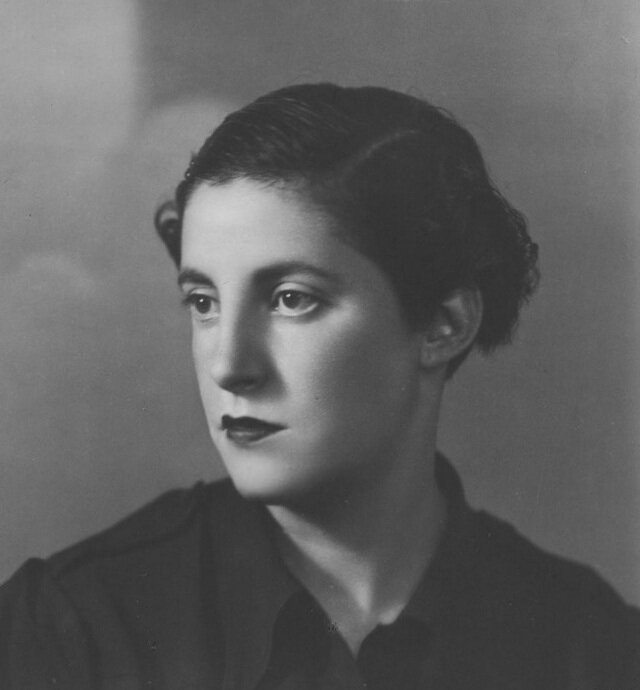
Pilar Primo de Rivera, Narodowe Archiwum Cyfrowe, signature 1-E-6512 , first published in Ilustrowany Kurier Codzienny
The above text clearly shows an awareness of differing perspectives. The (part-)answer argues that there was not one uniform impact of the Spanish Civil War on women. Instead, the impact varied substantially depending on whether women were living in the Nationalist zone or Republican zone and depending on which part of Republican Spain they lived in. The impact also changed over time as the more social and economic revolutionary changes introduced in some parts of the Republic were suppressed from 1937 onwards and as the Nationalists extended their control over more and more of the country.
Continuing your IB History revision and review
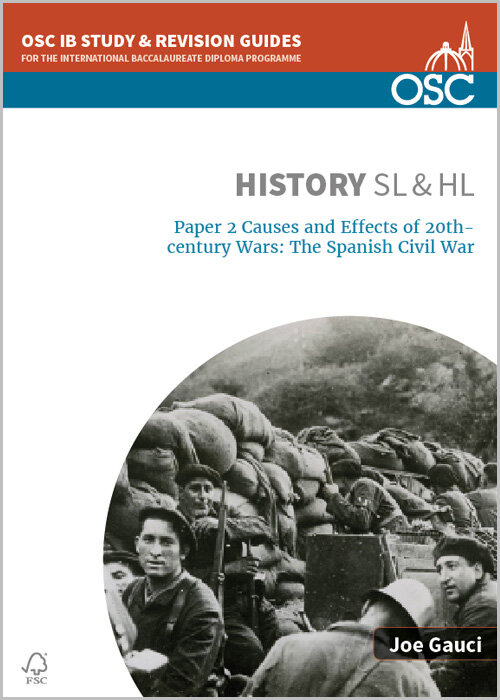
Providing a detailed overview of events in the Spanish Civil War for IB History, this study guide applies in particular to world topic 11: Causes and Effects of 20th-century Wars examined in IB History Paper 2, and is suitable for both Standard Level and Higher Level students. Structured to mirror the syllabus, the guide pays particular attention to essay writing and will help you to understand what examiners are looking for in your written responses. With ample opportunities for developing your analysis of key issues and practising your essay writing, this IB study guide will help you refine your skills to achieve exam success.
This title is currently available as the OSC edition.
ISBN: 9781910689417
The technique demonstrated above, as well as the alternative approach found in our additional article on this subject (link above), requires an in-depth contextual understanding and a good deal of practice to get right. As you progress through your IB History exam preparation, be sure to take time to practice constructing answers to potential exam questions. As above, you don’t need to necessarily write a complete essay when revising, but you do need to dedicate time to crafting the central arguments of your answer. Review your class materials and identify potential questions. Once you have a few, try devising responses that incorporate different perspectives. Once you have a draft response review it and go over your materials again to see if there is anything you have missed and make any needed adjustments.
When revising for your IB History exams make sure you have the necessary tools required to succeed. Our range of IB History study guides can help with that and includes a guide specifically on the Spanish Civil War. Our guides feature thorough reviews of syllabus topics, tips on exam preparation and technique, example answers with explanations, and plenty of practice questions to help you in the build-up to your IB exams. You can also find more free resources and study tools on our IB History subject page.
All titles by Joe Gauci
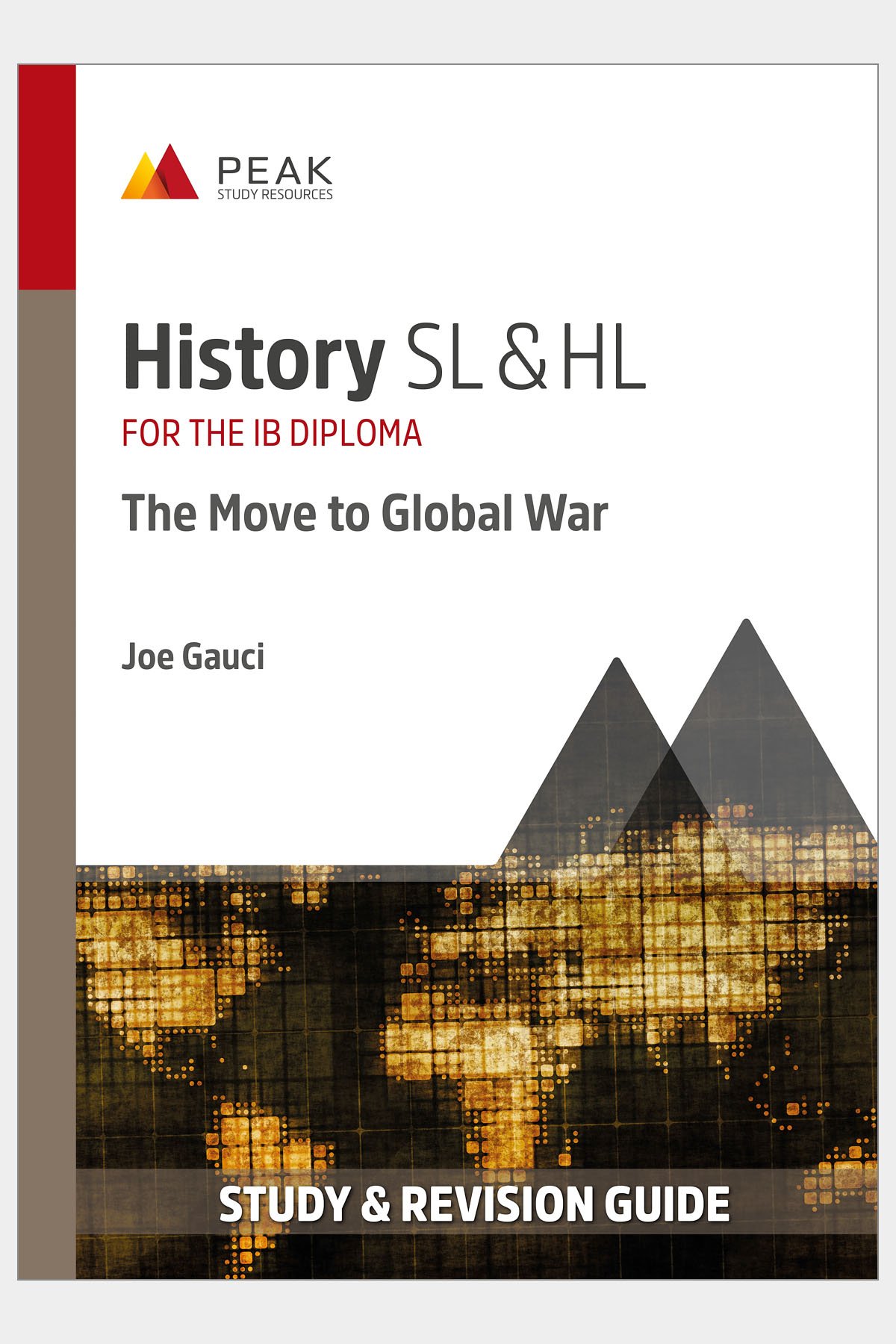
See all our History resources
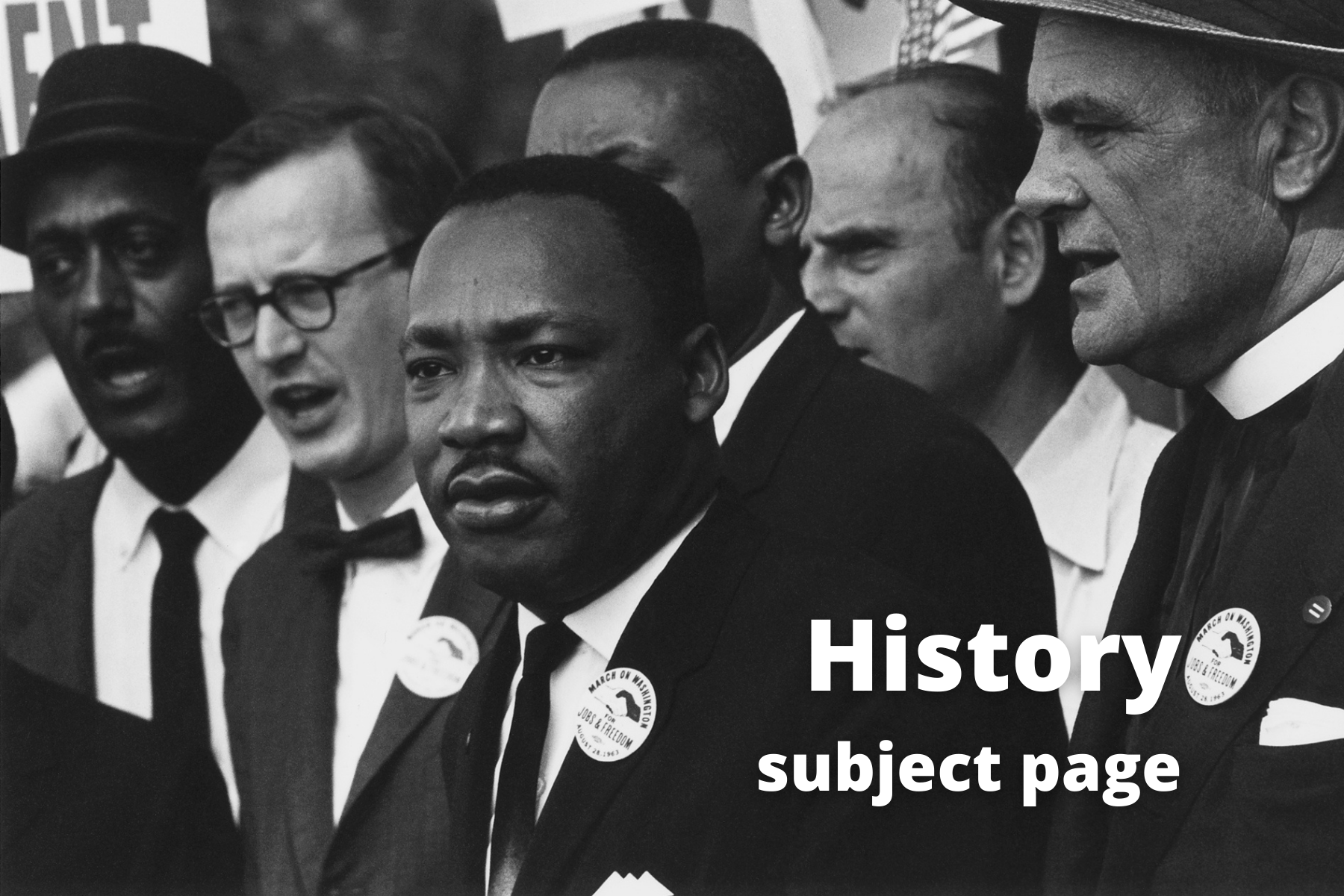

Choose Your Test
Sat / act prep online guides and tips, the best ib history notes and study guide for sl/hl.
International Baccalaureate (IB)

If you want to do well on the IB History exam, you'll need to have a solid set of notes to study from. This can be difficult though if you're missing notes or feel like some of your own notes don't cover certain topics in enough depth. Luckily, we're here to help! We've assembled the best FREE online IB History notes into this complete study guide.
feature image source: Mount Rushmore Monument America /Pixabay
What's the Format of the IB History Exam?
There are five prescribed subjects for IB History SL and HL:
- Military leaders
- Conquest and its impact
- The move to global war
- Rights and protest
- Conflict and intervention
Your teacher will choose one that you'll cover, and you'll be tested on this for paper 1 (one hour in length).
There is also a list of twelve world history topics. For paper 2 (1.5 hours), you'll cover two of these:
- Society and economy (750-1400)
- Causes and effects of wars (750-1500)
- Dynasties and rulers (750-1500)
- Societies in transition (1400-1700)
- Early Modern states (1450-1789)
- Causes and effects of Early Modern wars (1500-1750)
- Origins, development and impact of industrialization (1750-2005)
- Independence movements (1800-2000)
- Emergence and development of democratic states (1848-2000)
- Authoritarian states (20 th century)
- Causes and effects of 20 th -century wars
- The Cold War: superpower tensions and rivalries (20 th century)
If you're taking IB History HL, you'll also have a final paper (Paper 3) that is 2.5 hours and will cover one of the four Depth Studies:
- History of Africa and the Middle East
- History of the Americas
- History of Asia and Oceania
- History of Europe
If you're interested in taking a look at the entire IBO IB History Guide , you can find it as a .pdf here.
How to Use This IB History Study Guide
If you're hoping for help on one subject, use Command + F to search this guide for specific IB History notes about that subject. As an example, if you want to read about the Cold War, use Command + F to cue the search function. Then type "Cold War," and it'll bring up all of the study materials for the Cold War.
The resource is separated into:
- Quick reference: one-page summary of material if you just need a quick refresher.
- Longer notes: notes (generally 3-10 pages) if you need more of an in-depth explanation.
- Flashcards: online quizzes of key terms.
Common Study Mistakes for IB History SL/HL
Two common mistakes are:
- Trying to ignore the topics you didn't comprehend from your teacher's lesson. If you didn't understand it in class, you need to find additional assistance through this IB History study guide or tutoring. You're still going to be tested over this material whether you understood it in class or not!
- Only trying to learn the material a week or two before the IB papers. There is too much history to learn—one or two weeks will not be enough time to learn it (that's why IB History SL/HL is spread over a year or two). The best solution is keeping up in class and studying the material throughout the year.


Current IB History Guides
Because IB History was recently updated, there aren't that many current notes and study guides, but we've found the best available. These guides follow the syllabus of the current version of IB History. If you are studying the same topics these notes cover, they are a great resource to use because they hit all or most of the main topics you need to know to be well prepared for the IB History exam. There are guides that cover multiple topics as well as guides that cover a single topic.
Multi-Topic Guides and Overviews
IB History Duck covers similar topics. This guide focuses primarily on authoritarian leaders such as Hitler, Mao, and Stalin, as well as the Cold War, histories of China, the USSR, and Imperial Japan.
The Student Room has a plethora of resources for you. Just keep in mind that notes for the 2017 syllabus are mixed in with information from earlier exams , so make sure you're accessing and studying the correct material.
Single Topic Guides
These are notes on single topics that you'll cover on the IB syllabus.
Prescribed Topics: Military Leaders
- Military leaders overview
- Ghenghis Khan (c1200-1227) unit
- Richard I of England (1173-1199) unit
Prescribed Topics: Conquest and Its Impacts
- General overview of ideas you should know
- The final stages of Muslim rule in Spain
- The conquest of Mexico and Peru (1519-1551)
Prescribed Topics: Move to Global War
- Move to global war Prezi notes
- Move to global war longer notes
- Japanese expansion in East Asia (1931-1941)
- German expansion (1933-1940) unit
- Italian expansion (1933-1940)
Prescribed Topics: Rights and Protest
- Rights and protest US Civil Rights overview
- Rights and protest Apartheid South Africa overview
- Rights and protest complete unit
Prescribed Topics: Conflict and Intervention
- Conflict and Intervention general overview
- Conflict and Intervention workbook
- Conflict and Intervention Rwanda flash cards
World History Topics: Society and Economy
- Standard level economics brief
- Higher level economics brief
World History Topics: Causes and Effects of Wars (750-1500)
- Causes and effects of Medieval wars unit
World History Topics: Dynasties and Rulers (750-1500)
Dynasties and rulers (750-1500) unit, world history topics: societies in transition.
- Societies in transition Prezi
World History Topics: Early Modern States (1450-1789)
- Ferdinand/Isabella
- Charles I/Phillip II
- Henry VII (1485-1509)
- Henry VIII (1509-1529)
- Henry VIII (1529-1547)
- Edward VI (1547-1553)
- Mary I (1553-1558)
- Elizabeth I (1558-1603)
World History Topics: Causes and Effects of Modern Wars (1500-1750)
- Causes and effects of modern wars unit
World History Topics: Origins, Development and Impact of Industrialization (1750-2005)
- Origins, development, and impact of industrialization notes
World History Topics: Independence Movements
- Independence movements longer notes
- Independence movements flashcards
- Independence movements
World History Topics: Emergence and Development of Democratic States
- Evolution and development of democratic states overview
World History Topics: Authoritarian States (20th Century)
- Authoritarian states longer notes
- Authoritarian states (20th century)
World History Topics: Causes and Effects of 20th Century Wars
- Causes and effects of 20th Century wars general overview
- Causes and effects of 20th Century wars unit
World History Topics: The Cold War — Superpower Tensions and Rivalries (20th Century)
- Origins of the Cold War unit outline
- Origins of the Cold War event overview
- Origins of the Cold War longer notes
HL Depth Studies: History of Africa and the Middle East
- Africa and the Middle East unit
HL Depth Studies: History of the Americas
- History of the Americas longer notes
- History of the Americas unit
HL Depth Studies: History of Asia and Oceania
- History of China and Oceania longer notes
- History of China and Oceania unit
HL Depth Studies: History of Europe
- History of Europe longer notes
- History of Europe unit

Past IB History Guides
These notes are based on the older (pre-2017) version of IB History. They won't fit the syllabus you're currently following in class, but since the two versions cover many similar concepts, they can still be useful for learning more about a specific topic. Just be sure not to use them as your main study resource because they may not focus on the exact same areas you're expected to know.
Peacemaking, Peacekeeping - International Relations 1918-36
- 1.1 Aims of the participants and peacemakers: Wilson and the fourteen points
- 1.2 Terms of the Paris Peace Treaties 1919-20: Versailles, St Germain, Trianon, Neuilly, Sevre
- 1.3 The geopolitical and economic impact of the treaties on Europe and the mandate system
- 1.4 Enforcement of the provisions of the treaties: US isolationism, the retreat from the Anglo-American Guarantee, Disarmament-Washington, London and Geneva Conferences
- 1.5 The League of Nations: effects of the absence of major powers, the principles of collective responsibility, and early attempts at peacekeeping (1920-25)
- 1.6 The Ruhr Crisis (1923), Locarno and the Locarno Spring
- 1.7 Depression and threats to international peace and collective security, Manchuria (1931 to 1933) and Abyssinia (1935 to 1936)
- The Peace Treaties after World War One
- The League of Nations in the 1920s
- The Wall St. Crash / Depression
- The League of Nations in the 1930s
Communism in Crisis 1976–89
- 2.1 The struggle for power following the death of Mao Zedong, Hua Guofeng, the reemergence of Deng Xiaoping and the defeat of the Gang of Four
- 2.2 China under Deng Xiaoping, economic policies and the Four Modernizations
- 2.3 China Under Deng Xiaoping, Political Changes And Their Limits, Culminating In The Demonstrations In Tiananmen Square
- 2.4 Domestic and foreign problems of the Brezhnev era, economic and political stagnation, Afghanistan
- The Cold War c.1945-55
- The Cold War c.1955-91
- The Korean War c.1950-53
Causes, Practices and Effects of Wars
- World War One
- Causes of WW1
- Course / Effects WW1
- The Peace Treaties
- German Involvement in Spanish Civil War
- Causes of the Chinese Civil War
- Causes of WW2
The Cold War
Democratic states—challenges and responses.
- Weimar Germany
Origins and Development of Authoritarian and Single-Party States
- Tsarist / Revolutionary Russia
- Stalin's USSR
- Additional Stalin's USSR materials
- Hitler's Germany
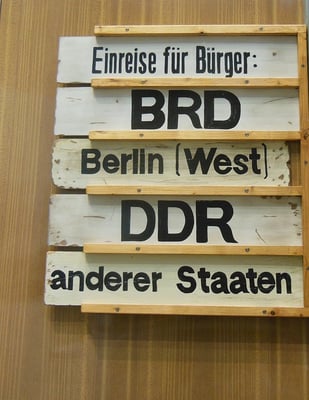
- Cold War Origins
Aspects of the History of the Americas
- United States Civil War: Causes, Course and Effects 1840-1877
- Emergence of the Americas in Global Affairs 1880-1929
- Political Developments in the Americas after the Second World War 1945-79
- The Cold War and the Americas
- Civil Rights and Social Movements in America
Aspects of the History of Europe and the Middle East
#1: The French Revolution and Napoleon
- Longer notes
#2: Unification and Consolidation of Germany and Italy
#3: The Ottoman Empire
#4: Western and Northern Europe 1848-1914
#5: Imperial Russia, Revolutions, Emergence of Soviet State 1853-1924
- Longer notes: Tsarist and Revolutionary Russia to 1924
- Longer notes: Alexander II
- Longer notes: Alexander III
- Longer notes: Nicholas II
#6: European Diplomacy and the First World War 1870-1923
- Longer notes: Causes of WW1 , Course / Effects WW1 , the Peace Treaties
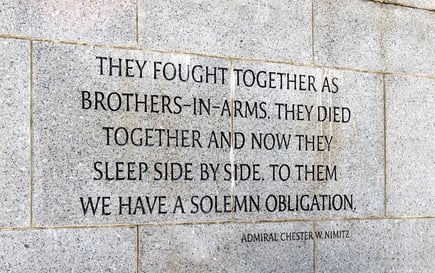
#7: War and Change in the Middle East 1914-49
- Longer notes: The Peace Treaties after World War One
- Longer notes: The League of Nations in the 1920s
- Longer notes: The Wall St. Crash / Depression
- Longer notes: The League of Nations in the 1930s
- Khrushchev and Brezhnev
- Causes for the Collapse of Communism in Europe
#10: The Second World War and Post-War Western Europe 1939-2000
#11: Post-War Developments in the Middle East 1945-2000
- Longer notes: European Option

What's Next?
Looking for more practice material for IB History? Then you'll definitely want to delve into our complete collection of free and official past IB history papers .
Interested in brushing up on some of your historical knowledge? Read about the Platt Amendment , checks and balances in the US government (as well as how the executive branch checks the judicial branch ), and lighthouse keeper Ida Lewis .
Alternatively, boost your esoteric knowledge by learning about the history of the three-hole punch and the real story of David Ghantt and the Loomis Fargo heist .
Finally, you can get practice materials for other IB classes on our blog:
- Every IB Biology Past Paper Available: Free and Official
- Every IB Business and Management Past Paper Available: FREE and Official
- Where to Find IB Chemistry Past Papers - Free and Official
- Every IB Economics Past Paper Available: Free and Official
- Every IB English Past Paper: Free and Official
- The Complete IB Extended Essay Guide: Examples, Topics, and Ideas
- Every IB Geography Past Paper Available: Free and Official
- Every IB Math Past Paper: Free and Official
- Where to Find IB Physics Past Papers - Free and Official
Want to improve your SAT score by 160 points or your ACT score by 4 points? We've written a guide for each test about the top 5 strategies you must be using to have a shot at improving your score. Download it for free now:

As an SAT/ACT tutor, Dora has guided many students to test prep success. She loves watching students succeed and is committed to helping you get there. Dora received a full-tuition merit based scholarship to University of Southern California. She graduated magna cum laude and scored in the 99th percentile on the ACT. She is also passionate about acting, writing, and photography.
Student and Parent Forum
Our new student and parent forum, at ExpertHub.PrepScholar.com , allow you to interact with your peers and the PrepScholar staff. See how other students and parents are navigating high school, college, and the college admissions process. Ask questions; get answers.

Ask a Question Below
Have any questions about this article or other topics? Ask below and we'll reply!
Improve With Our Famous Guides
- For All Students
The 5 Strategies You Must Be Using to Improve 160+ SAT Points
How to Get a Perfect 1600, by a Perfect Scorer
Series: How to Get 800 on Each SAT Section:
Score 800 on SAT Math
Score 800 on SAT Reading
Score 800 on SAT Writing
Series: How to Get to 600 on Each SAT Section:
Score 600 on SAT Math
Score 600 on SAT Reading
Score 600 on SAT Writing
Free Complete Official SAT Practice Tests
What SAT Target Score Should You Be Aiming For?
15 Strategies to Improve Your SAT Essay
The 5 Strategies You Must Be Using to Improve 4+ ACT Points
How to Get a Perfect 36 ACT, by a Perfect Scorer
Series: How to Get 36 on Each ACT Section:
36 on ACT English
36 on ACT Math
36 on ACT Reading
36 on ACT Science
Series: How to Get to 24 on Each ACT Section:
24 on ACT English
24 on ACT Math
24 on ACT Reading
24 on ACT Science
What ACT target score should you be aiming for?
ACT Vocabulary You Must Know
ACT Writing: 15 Tips to Raise Your Essay Score
How to Get Into Harvard and the Ivy League
How to Get a Perfect 4.0 GPA
How to Write an Amazing College Essay
What Exactly Are Colleges Looking For?
Is the ACT easier than the SAT? A Comprehensive Guide
Should you retake your SAT or ACT?
When should you take the SAT or ACT?
Stay Informed
Get the latest articles and test prep tips!
Looking for Graduate School Test Prep?
Check out our top-rated graduate blogs here:
GRE Online Prep Blog
GMAT Online Prep Blog
TOEFL Online Prep Blog
Holly R. "I am absolutely overjoyed and cannot thank you enough for helping me!”
Use the form on the right to contact us.
You can edit the text in this area, and change where the contact form on the right submits to, by entering edit mode using the modes on the bottom right.
123 Street Avenue, City Town, 99999
(123) 555-6789
You can set your address, phone number, email and site description in the settings tab. Link to read me page with more information.
IB Survivors

How to Write a Solid Level 7 English Essay for Paper 2
January 14, 2016 arthur zargaryan.
With good preparation, a few memorized quotes, and a solid knowledge of the themes of your novels, it is very much possible to score a 7 on the English Paper 2 Examination. I’m going to give you a basic outline of how to structure your essay and also tell you a nice way to organize your quotes for the books that you’re reading.
In case you missed it, you can click on the link below to see me explain the keys to getting a 7 on Paper 1 for English:
As a side note, all of this information is geared towards SL English Lang and Lit, but I’m sure that with a few adjustments it could be applied to HL as well.
So let’s get started:
How to Structure Your Essay:
a. introductory paragraph.
a) Motivator (address the question or statement)
b) Background Summary (brief background to the texts and authors)
c) Thesis (what are you trying to prove?)
d) Focus (how will you prove your thesis? This is where you state your arguments)
B. Points (aka each body paragraph embodies this layout-aim for 3-4 paragraphs)
a) Point (topic sentence)
b) Evidence (quotation or description)
c) Analysis (specific focus on literary techniques)
d) Link (back to the topic in the question)
C. Concluding Paragraph
a) State Thesis (using different words/phrases)
b) Summary of Main Arguments (do not include new information)
c) Clincher (final sentence: should leave examiner satisfied you have covered all areas, but should also attempt to provoke further inquiry, or new dimension of looking at question)
If you want to see an essay that I actually wrote following this template, subscribe to our mailing list (by going on the subscribe tab above) because I can’t post it here due to plagiarism concerns + functionality.
So, this is the structure you want to follow. A common query that students have is in regards to how they should mention their quotes whilst writing their essays. What I like to do is integrate them really fluidly within my paragraphs; this takes practice, but here are a few examples below from my writing:
Natsume identifies intricacies and details in British culture that seem entirely foreign to him coming from Japan; he notes the impeccable fashion sense that surrounds him: ‘ herds of women walk around like horned lionesses with nets on their faces ’ and notices a distinct height difference ‘ but when we rush past one another I see he is about two inches taller than me’ (Natsume in Phillips, R161). Natsume’s experience as an outsider in Britain, according to Caryl Philips, ‘ helped him to become the fully mature and outstandingly gifted writer that he subsequently became’ (Phillips, R161).
I hope you can see what I’m trying to do; note that each quote naturally compliments the flow of the paragraph. You never need to explicitly state that you are about to use a quote; rather, just insert it within your body as nicely as you can. I’ll be sending out more examples via email later.
The thesis statement of your essay is also extremely important; many English teachers have told me that often to gauge a writer’s quality they examine his thesis statement. The more clear and compelling it is, the more credibility you gain as a writer in their eyes. Remember that you should be aiming to provide an argument; otherwise, your whole essay won’t really have any meaning or substance (every single word you write should in some way back that thesis up).
Bad Thesis:
In this novel, Kanye West argues that we cannot justify the usage of drones and that their increased prevalence is harmful to members of society.
Good Thesis:
Though there may be considerable advantages to the usage of drones, West attempts to demonstrate that the worrying possibilities of mass surveillance and civilian losses, specifically in regards to the recent incidents in Orange County, are ultimately too precarious a path to follow.
I’m going to be honest: You should try to use flowery language to spice up your essays. It’s just the truth. Before you go sit that exam, go on www.thesaurus.com and try to replace some common words you’d use with some nice, juicy ones.
In terms of transitioning between paragraphs aim to be clear and simple. ‘It is possible to see the idea of..’ or ‘One argument put forward is…’ are pretty good.
Now, listen up: I’m about to share a very valuable piece of advice with all of you:
Get your whole class to create a shared Google Doc with the following table:

Then, together with your class, start filling the table.
It should get to a point where you have about 20 themes and plenty of quotes + analysis to back it up. Sharing is caring, and in this case, sharing will get you good grades.
Memorizing the quotes may seem daunting but it doesn’t have to be that hard: what I recommend is that you paste about 10 quotes you may use around your house. Literally post them outside your shower, perhaps, so that each time you bathe your beautiful body you also remember those quotes. Or put them up somewhere near your bed so that you go to sleep thinking about English.
I hope this was helpful, and feel free to ask questions.
I will be sending out the ‘The Ultimate IB Exam Study Guide’ to our mailing list in the next week. Subscribe to our mailing list now and be sure to get it!
Also, check out our eBook. We’re having a nice little sale, and we offer a 100% Money Back Guarantee, so you might as well!
All the best,

Get Free Exam Revision Guide
Sign up with your email address to receive the PDF document.
We respect your privacy, and will not spam you with with information (apart from COUPON CODES!!!!!!).
IBDP History
Website by Jo Thomas & Keely Rogers
Updated 29 March 2024
InThinking Subject Sites
Subscription websites for IB teachers & their classes
Find out more
- www.thinkib.net
- IBDP Biology
- IBDP Business Management
- IBDP Chemistry
- IBDP Economics
- IBDP English A Literature
- IBDP English A: Language & Literature
- IBDP English B
- IBDP Environmental Systems & Societies
- IBDP French B
- IBDP Geography
- IBDP German A: Language & Literature
- IBDP Maths: Analysis & Approaches
- IBDP Maths: Applications & Interpretation
- IBDP Physics
- IBDP Psychology
- IBDP Spanish A
- IBDP Spanish Ab Initio
- IBDP Spanish B
- IBDP Visual Arts
- IBMYP English Language & Literature
- IBMYP Resources
- IBMYP Spanish Language Acquisition
- IB Career-related Programme
- IB School Leadership
Disclaimer : InThinking subject sites are neither endorsed by nor connected with the International Baccalaureate Organisation.
InThinking Subject Sites for IB Teachers and their Classes
Supporting ib educators.
- Comprehensive help & advice on teaching the IB diploma.
- Written by experts with vast subject knowledge.
- Innovative ideas on ATL & pedagogy.
- Detailed guidance on all aspects of assessment.
Developing great materials
- More than 14 million words across 24 sites.
- Masses of ready-to-go resources for the classroom.
- Dynamic links to current affairs & real world issues.
- Updates every week 52 weeks a year.
Integrating student access
- Give your students direct access to relevant site pages.
- Single student login for all of your school’s subscriptions.
- Create reading, writing, discussion, and quiz tasks.
- Monitor student progress & collate in online gradebook.
Meeting schools' needs
- Global reach with more than 200,000 users worldwide.
- Use our materials to create compelling unit plans.
- Save time & effort which you can reinvest elsewhere.
- Consistently good feedback from subscribers.
For information about pricing, click here
Download brochure
See what users are saying about our Subject Sites:
Find out more about our Student Access feature:
What is Internal Assessment (IA)?
The IA or Internal Assessment provides both SL and HL students with an opportunity to explore any part of your history programme in more detail, or indeed to explore an area that is not covered by your programme (see question guidance).
Please note that teacher moderation is back for 2023 exams (rather than each script being marked by IB)
What are the requirements of the IA?
- It should take up about 20 hours teaching time which includes the setting up of the assignment, time in class to work on it and also one-on-one tutorials
- It is internally assessed according to the criteria; if two teachers are involved in the process then internal moderation must take place
- Teachers can look at and provide feedback on one draft of the IA
- Teachers must check for authenticity of the students work at all stages of the process
- The final assignment must not be more than 2,200 words
- There must be consistent referencing throughout and a bibliography
What is the structure of the IA?
The IA consists of 3 sections.
Section A requires students to state their question and to identify and evaluate two of the sources that have used. They also need to say why these sources are relevant to their investigation.
Section B is the main body of the assignment where students carry out their investigation and set out their work as they would do in a formal essay.
Section C is the reflection section where students need to reflect on what they have learnt about the methods of historians and the problems that historians face in dealing with evidence.
The criteria are dealt with in more detail here: IA: Explaining the criteria
1. IA: Explaining the criteria
This page explains the criteria for the IA in more detail.In this section, students need to:This section builds on the skills that they will already have developed for Question 2 of Paper 1.
2. IA: Getting the question right
The starting point for students is to find a topic that they are interested in.
3. IA: Graded student examples
This section includes samples of high scoring IAs with the marks and examiner's comments.
Selected Pages

IA Sample 1: Marshall Plan
These are the examiner's comments for this IA:Criterion AAn appropriate question for investigation has been clearly stated....

This section includes samples of high scoring IAs with the marks and examiner's comments.

IA Sample 2: Suez Crisis
Here are the examiner's comments for this IA:Criterion AAn appropriate question for investigation has been clearly stated....
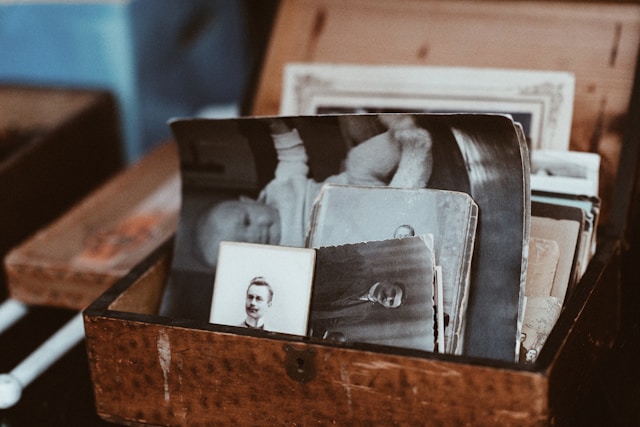
IA Sample 6: UK Race Relations Act, 1965
To what extent did the Race Relations Act (RRA) of December 1965 reduce racial discrimination in Britain?This IA scored...

IA Sample 5: Italian general election, 1948
IA Sample 5“To what extent was the victory of the Christian Democratic Party in the Italian general election, on 18th...
IA Sample 4: Operation Gibraltar
These are the examiner's comments for this IA:Criterion AAn appropriate question for investigation, appropriate and relevant...

IB TOK Essay examples
Type a search phrase to find the most relevant TOK Essay examples for you
Not sure what to search for? You can always look through our example Internal Assessments below for inspiration.

All TOK Essay Examples
Filter exemplars, for artists and natural scientists, which is more important: what can be explained or what cannot be explained discuss with reference to the arts and the natural sciences., does it matter if our acquisition of knowledge happens in "bubbles" where some information and voices are excluded discuss with reference to two areas of knowledge., want to get full marks for your tok essay allow us to review it for you 🎯, is replicability necessary in the production of knowledge discuss with reference to two areas of knowledge., are visual representations always helpful in the communication of knowledge discuss with reference to the human sciences and mathematics., fast track your coursework with mark schemes moderated by ib examiners. upgrade now 🚀, to what extent is the knowledge we produce determined by the methodologies we use discuss with reference to history and one area of knowledge., tok essay: 5. “how can we distinguish between good and bad interpretations discuss with reference to the arts and one other area of knowledge”, 如果我们是在排除某些信息和声音的“信息同温层”里获取知识,这有关系吗请参考两个知识领域展开你的应答。, does it matter if our knowledge acquisition happens in "bubbles" where some information and voices are excluded discuss with reference to two areas of knowledge., is replicability necessary in the production of knowledge discuss with reference to two areas of knowledge, do you agree that it is “astonishing that so little knowledge can give us so much power” (bertrand russell) discuss with reference to the natural sciences and one other area of knowledge., does it matter if our acquisition of knowledge happens in “bubbles” where some information and voices are excluded discuss with reference to two areas of knowledge., to what extent is the knowledge weproduce determined by the methodologieswe use, for artists and natural scientists, which is more important: what can be explained or what cannot be explained discuss with reference to the arts and natural science., êtes-vous d'accord qu'il est "étonnant que si peu de connaissance puissent nous donner autant de pouvoir" (bertrand russell) - discutez cette question en faisant référence aux sciences naturelles et à un autre domaine de la connaissance, est-il important que notre acquisition des connaissances se fasse dans des « bulles » où certaines informations et certaines voix sont exclues discutez cette question en faisant référence à deux domaines de la connaissance., to what extent is the knowledge we produce determined by the methodologies we use discuss with reference to history and one other area of knowledge., is replicability necessary in the production of knowledge discuss with reference to two area of knowledge, are visual representations always helpful in communicating knowledge discuss with reference to the human sciences and mathematics., are visual representations always useful in communication of knowledge discuss with reference to the human sciences and mathematics., for artists and natural scientists which is more important: what can be explained or what cannot be explained, is replication necessary in the production of knowledge discuss with reference to two aoks., do you agree that it is "astonishing that so little knowledge can give us so much power" (bertrand russell) discuss with reference to the natural sciences and one other area of knowledge., is replicability necessary in the production of knowledge.
Extended essay
The extended essay is an independent, self-directed piece of research, finishing with a 4,000-word paper.
One component of the International Baccalaureate® (IB) Diploma Programme (DP) core, the extended essay is mandatory for all students.
Read about the extended essay in greater detail.
You can also read about how the IB sets deadlines for the extended essay , find examples of extended essay titles from previous DP students and learn about the world studies extended essay .
Learn more about the extended essay in a DP workshop for teachers .
DP subject briefs
Find out about what each subject offers within the Diploma Programme (DP).
Our DP subject briefs—for both standard and higher level—contain information about core requirements, aims and assessment.
- Explore the DP subject briefs

We use cookies on this site. By continuing to use this website, you consent to our use of these cookies. Read more about cookies

IMAGES
VIDEO
COMMENTS
High scoring IB History Extended Essay examples. See what past students did and make your History EE perfect by learning from examiner commented examples! Exemplars. Review. Login. JOIN FOR FREE. Home. EE. ... Level. HL. SL. Session. May 2025 May 2024 November 2023 May 2023 November 2022 May 2022 November 2021 May 2021 November 2020 May 2020 ...
High scoring IB History Internal Assessment examples. See what past students did and make your History IA perfect by learning from examiner commented examples! Exemplars. Review. Login. JOIN FOR FREE. ... Level. HL. SL. Session. May 2025 May 2024 November 2023 May 2023 November 2022 May 2022 November 2021 May 2021 November 2020 May 2020 Other ...
Sample essays in IB History that are not past paper questions. Jump to content. History; ... This essay got a level 6. Submitted May 21, 2019. Napoleon practice essay. Done in year 1 of IB, earned a low 6 (internally marked) Submitted May 5, 2019. Analysis 4 - Hayden Harper.docx.
The International Baccalaureate (IB) History program challenges students to develop a deep understanding of historical events, themes, and interpretations. One of the key assessment components is the Paper 2 essay, which requires students to analyze and write about historical sources. In this article, we will explore the structure of the IB History Paper 2 essay and provide you with valuable ...
2. AQA History: Component 2. 3. Edexcel history: Paper 1. 4. Edexcel history: Paper 2. 5. Edexcel history: Paper 3. Papers Two and Three of your IB history examination are assessed through essay writing; thus a large part of your history course will be devoted to practising essay writing, both in non-timed and in timed conditions.
Current IB History Papers. The best source for up-to-date IB History past papers is the IBO store. To find them, search "history exam paper." Each paper and each mark scheme cost about $3 for older tests or $4 for more recent tests. That means a full test's worth will cost you about $12-$16 for SL or $18-$24 for HL.
Through the History IA, IB expects you to critically explore the past with your learned skills. A historical investigation on a topic of interest needs to be done by both HL and SL students. While the IA makes for 25% of the final IB score of History SL, the weightage is 20% for History HL. A few of the advantages of this historical ...
English B SL specimen paper 2 audio [61,7 MB] English B specimen papers and markschemes (first assessment 2020) [2.1MB] Group 3: Individuals and societies. Geography specimen papers and markschemes (first exams 2019) [7.7MB] History specimen paper 1 (first examinations May 2017) [242KB]
The History IA was one of the hardest assignments I did during my time in the IB, and not without good reason! Luckily, it all boils down to 3 main sections which require relatively simple things from you.You need to analyse your sources (you can use OPVL, a highly recommended method), try to create a balanced discussion about your research question, and finally introduce some of your own ...
Knowing how to answer your IB History essay prompt is essential to achieving your best. In this article, our IB HIstory expert and author, Joe Gauci, shares his top tips on how to write an effective compare and contrast essay for your IB History exams. You can also see his analysis of an example answer and learn how to improve your responses to ...
How do you incorporate different perspectives into your essays? Higher and Standard Level IB History candidates tackling Paper 2 and Higher Level candidates writing essays for Paper 3 need to be able to show an awareness and evaluation of 'different perspectives' in order to access the second highest mark band (10-12 out of 15) and provide an evaluation of different perspectives integrated ...
What IB History students need to know about their exam essays. Higher and Standard Level History candidates tackling Paper 2 and Higher Level candidates writing essays for Paper 3 need to be able to show an awareness and evaluation of 'different perspectives' in order to access the second highest mark band (10-12 out of 15) and provide an evaluation of different perspectives integrated into ...
Conclusion. References and bibliography. Additionally, your research topic must fall into one of the six approved DP categories, or IB subject groups, which are as follows: Group 1: Studies in Language and Literature. Group 2: Language Acquisition. Group 3: Individuals and Societies. Group 4: Sciences.
The Cold War: superpower tensions and rivalries (20 th century) If you're taking IB History HL, you'll also have a final paper (Paper 3) that is 2.5 hours and will cover one of the four Depth Studies: History of Africa and the Middle East. History of the Americas. History of Asia and Oceania. History of Europe.
These highlight the diverse range of topics covered by International Baccalaureate® (IB) Diploma Programme (DP) students during their extended essays. Some examples are: "An analysis of costume as a source for understanding the inner life of the character". "A study of malnourished children in Indonesia and the extent of their recovery ...
The International Baccalaureate Diploma Programme program offers a variety of assessments for students, including Internal Assessments (IAs), which are pieces of coursework marked by students' teachers. The History Internal Assessment (IA) is an essential component of the course and accounts for 20% of the final grade for Higher Level students and 25% for Standard Level students - although ...
Here, don't go too much into the detail, as it's only the intro. You also need to state your main argument here. Body 1: Start with focusing on the question, make sure the opening sentence links to the issue "The treaty of Versailles played the key role in creating difficulties for Weimar Republic. Firstly…" then you state one fact.
Number of IB History SL & HL candidates and mean grades in 2021. IB History grading system and exam format. The History course is graded on a scale of 1-7 as with all DP subjects, with a score of 7 being the highest.The final grade is determined by combining the scores from the internal assessment (IA) and the external assessments.
8 Reasons Why You Should Take IB Over AP. With good preparation, a few memorized quotes, and a solid knowledge of the themes of your novels, it is very much possible to score a 7 on the English Paper 2 Examination. I'm going to give you a basic outline of how to structure your essay and also tell you a nice way to organize your quotes for t.
The Diploma Programme (DP) history course is a world history course based on a comparative, multi-perspective approach to history and focused around key historical concepts such as change, causation and significance. It involves the study of a variety of types of history, including political, economic, social and cultural, encouraging students ...
The IB Core. CAS and History; Extended Essay. 1. Extended Essay: Choosing topics and questions; 2. Extended Essay: Research and referencing tips; 3. Extended Essay: Applying criteria A - D; 4. Extended Essay: Applying criterion E; 5. Extended Essay: Graded student examples; 6. Extended Essay: Graded student examples, old criteria; Theory of ...
High scoring IB Theory of Knowledge Essay examples. See what past students did and make your TOK Essay perfect by learning from examiner commented examples! ... Level. HL. SL. ... Discuss with reference to history and one area of knowledge. TOK Essay A. Are visual representations always helpful in the communication of knowledge? Discuss with ...
The extended essay is an independent, self-directed piece of research, finishing with a 4,000-word paper. One component of the International Baccalaureate® (IB) Diploma Programme (DP) core, the extended essay is mandatory for all students. Read about the extended essay in greater detail. You can also read about how the IB sets deadlines for ...